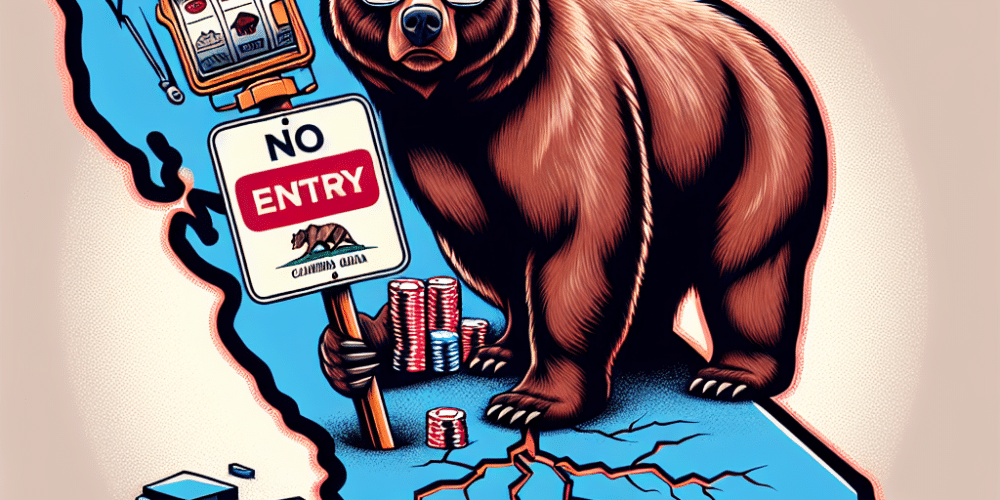In a decisive move, the California legislature voted unanimously to ban sweepstakes casinos effective January 1, 2026, with Governor Gavin Newsom formally enacting the decision. This legislative action reflects the state’s commitment to maintaining exclusive gaming rights for tribal nations, fulfilling agreements established under California’s constitution.
The passage of Assembly Bill 831, which faced no opposition in the final vote, marks a significant victory for the California Nations Indian Gaming Association (CNIGA). The association has long maintained that sweepstakes casinos infringe upon the tribes’ exclusive gaming rights within the state. In a public statement, CNIGA emphasized that the new law ensures compliance with both state laws and tribal agreements, reinforcing the integrity of California’s gaming landscape.
For the sweepstakes casino industry, the decision delivers a substantial blow. With over 39 million residents, California’s market is the largest among states that have opted to outlaw these platforms. Previously, New York appeared poised to take a similar step, with a comparable bill awaiting Governor Kathy Hochul’s signature. In contrast, Florida’s attempt to pass similar legislation stalled earlier this year, temporarily sparing the industry from a nationwide trend.
However, not everyone is in favor of California’s sweeping ban. The Social Gaming Leadership Alliance (SGLA), representing sweepstakes casino operators, expressed profound disappointment at the legislative decision. They pointed to a study conducted by Seven Letter Insight, which revealed that 85% of Californian respondents preferred updating and regulating the sweepstakes gaming sector rather than an outright ban.
Jeff Duncan, the executive director of SGLA, voiced deep concern over the economic implications of the ban. He argued that it would exacerbate economic disparities among California’s tribal nations and hinder the state’s progress in digital innovation within the gaming sector. Furthermore, Duncan claimed that the prohibition would strip approximately $1 billion from California’s economy, not to mention deprive residents of a popular entertainment option.
Duncan ardently urged Governor Newsom to reconsider, suggesting alternative solutions such as legalizing and regulating online social games. He proposed that such measures could support economically disadvantaged tribal communities while positioning California at the forefront of next-generation gaming technology.
Despite these appeals, Governor Newsom proceeded to sign the bill into law, underscoring the state’s firm stance against sweepstakes casinos. The decision marks a clear message that operations exploiting legal ambiguities by substituting virtual currency for conventional wagers will no longer be tolerated.
This legislative action effectively forces California’s social casino gaming enthusiasts to seek alternatives beyond state lines, as the industry loses access to a crucial market. Indeed, the broader implications of this ban extend beyond immediate economic losses. It also sets a precedent that other states currently deliberating similar measures may follow.
Critics of the bill argue that the sweeping ban might prompt unintended consequences, such as driving players to unregulated or offshore platforms, potentially increasing risks associated with consumer protection and responsible gaming. They emphasize the importance of a regulated market to safeguard consumer interests and ensure fair play.
Alternatively, proponents of the ban highlight its potential to fortify tribal sovereignty over gaming rights, a central aspect of California’s legal framework. They argue that this move could serve as a catalyst for more robust collaboration between the state and tribal nations, fostering mutual economic growth and cultural preservation.
As California prepares for the implementation of this landmark decision, both advocates and opponents of the ban will likely continue to debate its long-term impact on the state’s economy, tribal relations, and the evolution of the gaming industry as a whole. While the immediate effects are significant, the broader repercussions of California’s stance against sweepstakes casinos may shape the future landscape of gaming regulation across the United States.

David Harrison stands tall in gambling journalism, marrying his firsthand casino experiences with a deep understanding of betting psychology. His articles transform complex gambling jargon into engaging tales of strategy and chance, making the world of betting accessible and enjoyable. David’s knack for narrative extends beyond print, making him a sought-after speaker on gambling trends and future bets. In the realm of gambling, David is both a scholar and a storyteller, captivating readers and listeners alike.
















